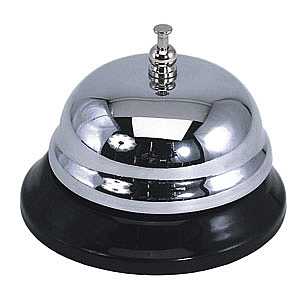My interview with Joe Deer (published in three parts, here, here and here) generated a ton of traffic and response on the site, which leads me to believe there are a lot of serious singing actors with college auditions on their minds.
As a followup, I want to tip you off to the single most important thing you must remember to do in your college audition:
Show ’em you can sing and ding!
It doesn’t make a damn bit of difference what song you sing, or what you think or feel about your song, if you don’t ding it when you sing it!
I’ve been in the audition room with thousands of hopeful candidates over the years, and for me, this is the one single attribute that’s most likely to get you an offer. It helps me see you as a promising applicant, and makes you stand out from the clueless crowd. It gets you into the “yes” pile.
If you’re not familiar with SAVI lingo, you’re probably scratching your head, so please let me explain.
 To “ding” a song means to break a song down phrase-by-phrase, and create expressive behavior that changes noticeably at the beginning of each phrase.
To “ding” a song means to break a song down phrase-by-phrase, and create expressive behavior that changes noticeably at the beginning of each phrase.
The first ding – the first change – is the impulse that compels you to begin singing at the beginning of your song. It launches an action, an intention that animates the entire phrase.
The second ding is the beginning of the second phrase, and offers the first opportunity to make an adjustment, a change in your behavior. The quality of that adjustment will reveal something about your understanding of how the new phrase differs from its predecessor. Ditto for every subsequent phrase, every single ding.
Each ding is specific to the text, the music and the dramatic moment; a new phrase requires new behavior, some sort of variation or disruption of the previous. That change may be a response to something external – your partner’s behavior, the environment – or it may be internally triggered, the result of a realization or an impulse that has just occurred. Just like the sound of a bell, however, a “ding” happens all at once, and is slightly startling.
Singing and dinging requires insight as well as the technical ability to execute a range of choices. Proficiency at making impulsive changes – “I was doing this, but now I’ve decided to do something different” – is a fundamental skill that any singing actor must possess, and it can be mastered through patient, persistent practice.
In case you’re worried – you don’t have to be an Olympic-level dinger-singer at your college audition. You just need to show that you understand the importance of dinging while singing, and that you’ve devoted some time and effort to it in preparation for your audition. You’ll gain proficiency and the ability to apply this principle to a variety of roles and repertoire with time.
By the way, does this pertain to monologues? Hell, yes! And to every performance you’ll prepare for the rest of your life!
 So get busy! When you sing your songs, ding your songs! Be on the lookout for my Sing and Ding Tutorial, on its way soon. It’ll soon become a habit for you, an indispensable tool you’ll use with confidence and flair! And before long, you’ll know the truth of this SAVI Saying:
So get busy! When you sing your songs, ding your songs! Be on the lookout for my Sing and Ding Tutorial, on its way soon. It’ll soon become a habit for you, an indispensable tool you’ll use with confidence and flair! And before long, you’ll know the truth of this SAVI Saying:

Charlie, I totally agree! I look for LIFE in the audition room. Moment by moment discovery of the next idea or experience. That results in an effervescent performance that feels spontaneous because the singing actor has planted new discoveries all over the map. Thank you for this tip.
This is about the same thing any actor should do with a monolog or scene. Find the “beats”. Break up the scene or monolog into these beats and you have a much deeper understanding of your objective. Then you will see where your character changes tactics to obtain this objective.
Yes, tactics often change at the beginning of a new phrase. You’re absolutely correct to make the connection between the actors’ “beats” and the “dings” I write about. I love the term “ding,” though, because the very sound of the word suggests an impulsive disruption of the action. Thanks for your reply, Taren!